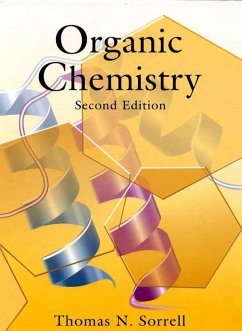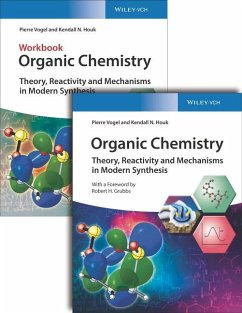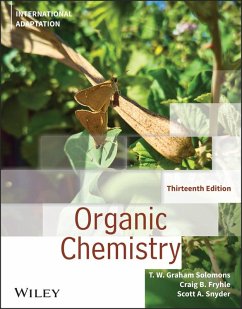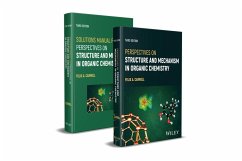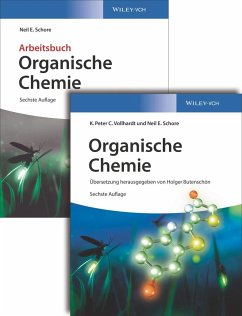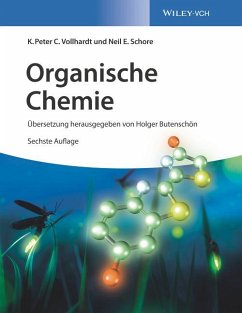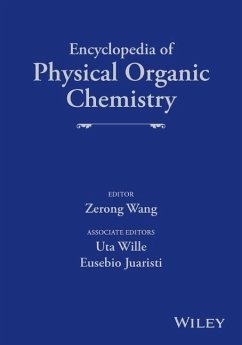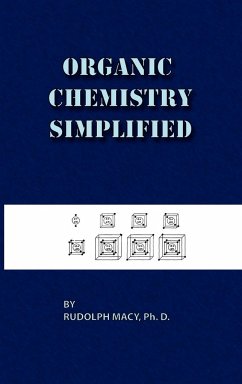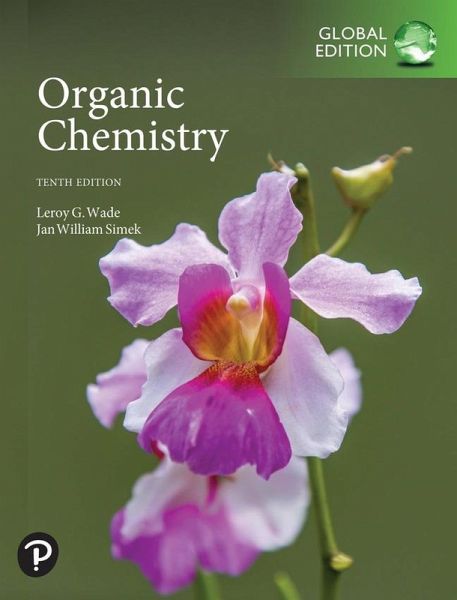
Organic Chemistry, Global Edition
Versandkostenfrei!
Versandfertig in 2-4 Wochen
107,99 €
inkl. MwSt.

PAYBACK Punkte
54 °P sammeln!
For courses in Organic Chemistry Engage students in complex problem solving with unparalleled pedagogy Wade & Simek's Organic Chemistry focuses students on the fundamental reasoning and principles of organic chemistry without compromising the conceptual underpinnings and clear explanations needed to prevent memorization. The authors' hallmark student-oriented approach to problem-solving directs students to the individual steps of each reaction, shows how the steps contribute to the overall reaction, and incorporates unique strategies and hints. Organized around functional groups, the text inco...
For courses in Organic Chemistry Engage students in complex problem solving with unparalleled pedagogy Wade & Simek's Organic Chemistry focuses students on the fundamental reasoning and principles of organic chemistry without compromising the conceptual underpinnings and clear explanations needed to prevent memorization. The authors' hallmark student-oriented approach to problem-solving directs students to the individual steps of each reaction, shows how the steps contribute to the overall reaction, and incorporates unique strategies and hints. Organized around functional groups, the text incorporates complete discussions of mechanisms. The two-tiered approach to Mechanism and Key Mechanism Boxes concentrates on 20 Key Mechanisms that comprise nearly all of the mechanisms students will encounter. Mastering is the teaching and learning platform that empowers you to reach every student. By combining trusted author content with digital tools developed to engage students and emulate the office-hour experience, Mastering personalizes learning and improves results for each student. Mastering Chemistry provides an extension of learning, allowing students a platform to practice, learn, and apply knowledge outside of the classroom. Plus, give students anytime, anywhere access with Pearson eText Pearson eText is a simple-to-use, mobile-optimized, personalized reading experience available within Mastering Chemistry. It lets students highlight, take notes, and review key vocabulary all in one placeeven when offline. Seamlessly integrated videos and other rich media engage students and give them access to the help they need, when they need it. Educators can easily share their own notes with students so they see the connection between their eText and what they learn in class.
Dieser Artikel kann nur an eine deutsche Lieferadresse ausgeliefert werden.



